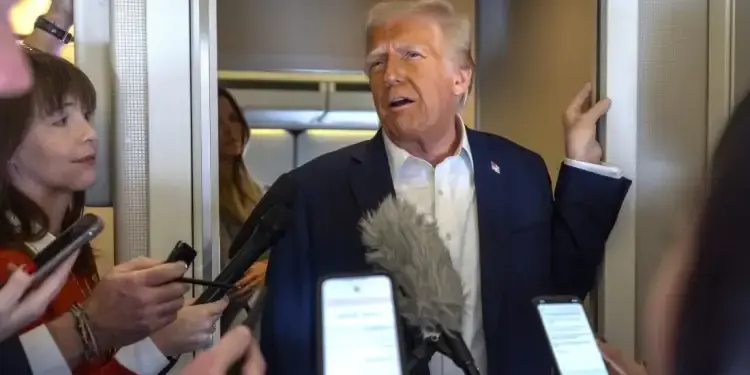Donald Trump caused new international controversy by suggesting a radical plan for the Gaza Strip. During a statement on Saturday January 25, the American president spoke of the idea of a “cleaning” of this overcrowded territory, proposing to move its inhabitants to Egypt and Jordan.
Donald Trump compared the Gaza Strip to a “demolition site” and suggested that its 1.5 million inhabitants are temporarily or permanently relocated. “We are talking about around 1.5 million people, and we simply do the cleaning in there,” he said. Trump added that he would like to see Egypt and Jordan welcome these populations to promote peace.
Donald Trump’s words immediately sparked convictions around the world. The Arab League firmly rejected this proposal, calling it attempt as “ethnic cleaning”. In a press release, the organization denounced an attempt to “forced” the Palestinians from their land.
Jordan, which already welcomes 2.3 million Palestinian refugees, reiterated its rejection of any proposal aimed at transforming the kingdom into “alternative homeland” for the inhabitants of Gaza.
Egypt also expressed its opposition, recalling its “constant support for the resilience of the Palestinian people on their land”. The Egyptian Ministry of Foreign Affairs rejected any idea of displacement, annexation or depopulation of Gaza, insisting on the inalienable rights of the Palestinians.
For the Palestinians, this suggestion painfully recalls the “Nakba” (“disaster”), a name given to the forced displacement of hundreds of thousands of them during the creation of Israel in 1948. Rashad al-Naji, a resident of Gaza, said: “We will not leave Gaza, no matter what happens”.
Hamas and Mahmoud Abbas, president of the Palestinian authority, unanimously rejected this proposal, accusing Trump of seeking to rekindle historical wounds.
Donald Trump, known for his controversial positions on the Israeli-Palestinian conflict, had already aroused indignation by recognizing Al-Quds occupied as the capital of Israel and by moving the American Embassy. However, this last suggestion goes further by reactivating debates on the right of Palestinians to their land and their self -determination.








